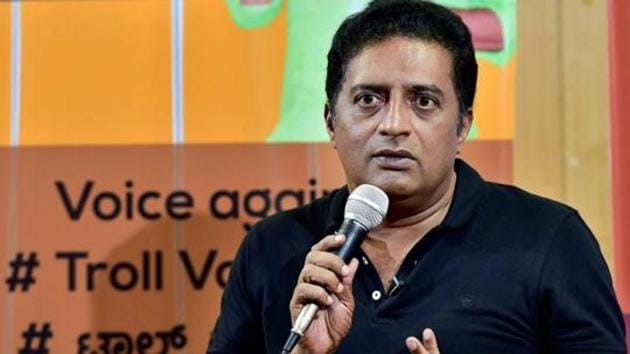
'We love our mother tongue...we love our identities': Prakash Raj on Hindi imposition row

‘Tamil, as a language, serves as the root to the rights of the people’ is a line from a famous poem of celebrated Tamil nationalist poet Bharathidasan. This is what musician AR Rahman posted on Twitter, with an image of a goddess figure, who he had titled ‘Tamizhanangu’, as a reaction to the comment made the Union home minister, Amit Shah, on how Hindi should be accepted as an alternative to English.
The “time has come to make the Official Language an important part of the unity of the country,” he had said last week while presiding over the 37th meeting of the Parliamentary Official Language Committee in New Delhi.
Don’t try to break Homes Mr Home Minister … We DARE YOU #stopHindiImposition we love our diversity..we love our Mother tongue… We love our Identities..#JustAsking pic.twitter.com/6eysDCqcnH
— Prakash Raj (@prakashraaj) April 8, 2022
Bollywood actor Prakash Raj, who acts in scores of Hindi movies, too objected to Shah’s statement that people from different states should speak in Hindi. Raj, whose mother tongue is Kannada, took to Twitter to quote a media report featuring Shah’s statement, “People from different states should speak in Hindi, not English” as its headline, and added, “Don’t try to break homes Mr Home Minister … We dare you#stopHindiImposition. We love our diversity…We love our mother tongue…We love our identities”.
Also read: Hindi row: How Periyar, Anna continue to inspire the language of resistance
Other actors, directors and technicians from south Indian film industries also raised their concerns about the imposition of Hindi on non-Hindi speaking states.
The issue of the imposition of the Hindi language crops up now and then. In 1949, the Constituent Assembly had adopted the Munshi-Ayyangar formula, in which, Hindi in the Devnagari script would be the official language of the Union. English however would continue to be used for all official purposes for the next 15 years, to enable a smooth transition for non-Hindi speaking states.
However, when the issue came up again in 1965, it became a movement against the imposition of Hindi by states like Tamil Nadu, which witnessed protests, hartals and even a self-immolation. The government of India enacted the Official Language Act in 1963, which provided for the indefinite use of English alongside Hindi.
In 1968, a National Policy on Education was adopted, which said that in non-Hindi-speaking states, the language should be taught optionally along with English and the regional language. However, in 2019, when the policy was updated, it stated that Hindi should be taught mandatorily in schools in non-Hindi speaking states. The backlash against this was so strong that the Centre had to tweak its policy.


